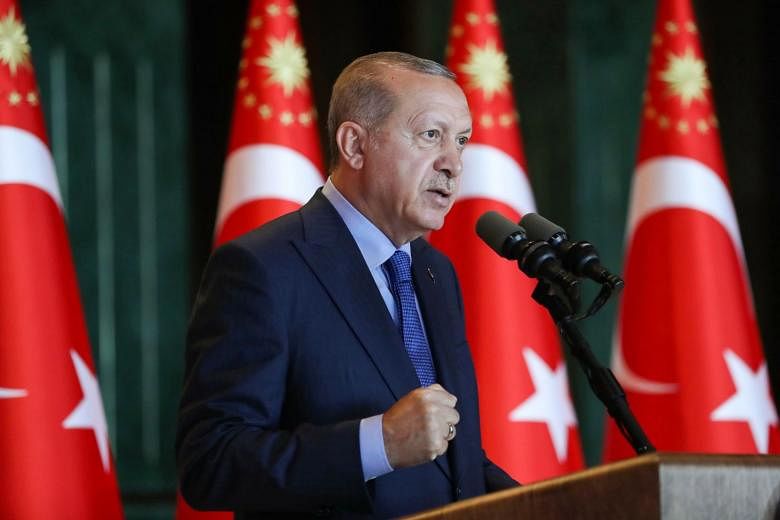Asian markets stumbled again yesterday as Turkey hit the United States with new tariffs, escalating the stand-off between the two countries.
After calling on its consumers to boycott American electronics on Tuesday, Turkey doubled tariffs on US imports, including alcohol, cars and tobacco, yesterday. This came after US President Donald Trump had hiked tariffs on Turkish metals last Friday, causing the lira to go into free-fall.
Turkey also gave banks more flexibility to restructure troubled loans yesterday - a move that helped lift the battered lira to 6.10 against the US dollar from its record low of 7.24 a few days back. The slump in the currency had raised fears that Turkish companies may default on loans and investors may pull out.
Meanwhile, Asian stocks slipped amid worries over the currency crisis. China's Shanghai Composite Index was down 2.08 per cent, Hong Kong's Hang Seng Index lost 1.55 per cent and Japan's Nikkei 225 slid 0.68 per cent. Singapore's Straits Times Index closed 0.27 per cent lower.
CMC Markets analyst Margaret Yang pointed out that "Turkey's turmoil has very little to do with local companies and the economic outlook", and more to do with investors' confidence.
The Turkish crisis has unnerved other emerging markets which also borrowed heavily when interest rates were low, but now worry that they too might find it hard to repay once US rates rise.
Bank of Singapore currency strategist Sim Moh Siong stressed, however, that such funding needs among Asian countries like India and Indonesia, at less than 3 per cent of gross domestic product, seem manageable relative to their foreign reserve size and capacity for policy response.
"Already, we are seeing responses from some of the Asian countries. Indonesia hiked interest rates - reinforcing the message that rupiah stability is a priority," said Mr Sim.
Companies with a substantial stake in Turkey have been observing the situation closely, said Singapore Turkey Business Association president Selami Genc. He added: "The most recent currency situation is more related to political conflict which Turkey has been having with the US, rather than the economic fundamentals of the country."
For Turkish businessmen in Singapore such as Mr Mehmet Gul, who sells handicraft and lights from his home country, the lira crisis has triggered mixed feelings: "It benefits us a little because we earn a different currency here, but not our country."
Asked about the situation in Turkey, he said: "I am worried but not scared. Regular people still do their jobs, though their money is worth less now. They feel that they need to stand strong in this situation, and that is why everyone is still holding on. It is not a single person's problem; it is a country's problem."


